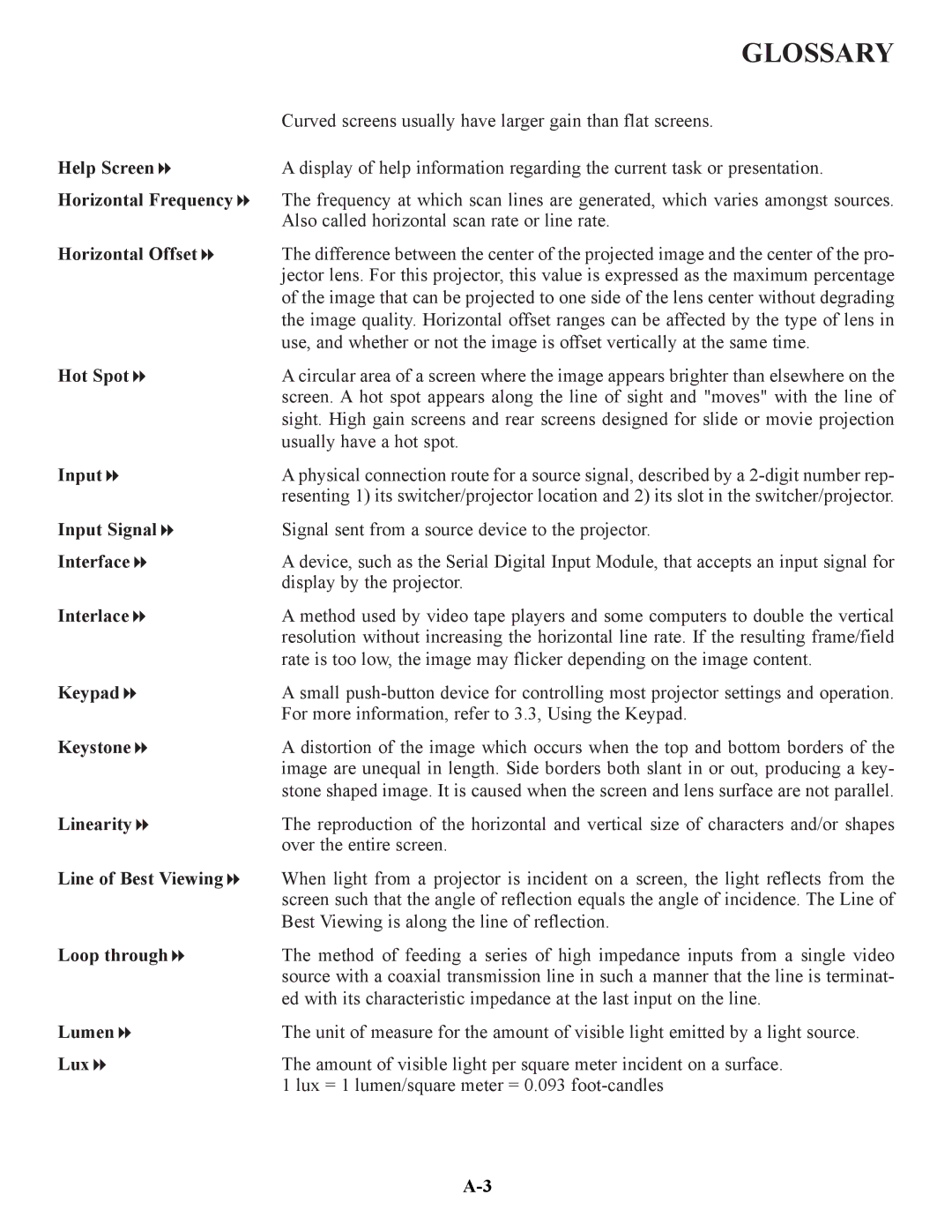| GLOSSARY |
| Curved screens usually have larger gain than flat screens. |
Help Screen | A display of help information regarding the current task or presentation. |
Horizontal Frequency | The frequency at which scan lines are generated, which varies amongst sources. |
| Also called horizontal scan rate or line rate. |
Horizontal Offset | The difference between the center of the projected image and the center of the pro- |
| jector lens. For this projector, this value is expressed as the maximum percentage |
| of the image that can be projected to one side of the lens center without degrading |
| the image quality. Horizontal offset ranges can be affected by the type of lens in |
| use, and whether or not the image is offset vertically at the same time. |
Hot Spot | A circular area of a screen where the image appears brighter than elsewhere on the |
| screen. A hot spot appears along the line of sight and "moves" with the line of |
| sight. High gain screens and rear screens designed for slide or movie projection |
| usually have a hot spot. |
Input | A physical connection route for a source signal, described by a |
| resenting 1) its switcher/projector location and 2) its slot in the switcher/projector. |
Input Signal | Signal sent from a source device to the projector. |
Interface | A device, such as the Serial Digital Input Module, that accepts an input signal for |
| display by the projector. |
Interlace | A method used by video tape players and some computers to double the vertical |
| resolution without increasing the horizontal line rate. If the resulting frame/field |
| rate is too low, the image may flicker depending on the image content. |
Keypad | A small |
| For more information, refer to 3.3, Using the Keypad. |
Keystone | A distortion of the image which occurs when the top and bottom borders of the |
| image are unequal in length. Side borders both slant in or out, producing a key- |
| stone shaped image. It is caused when the screen and lens surface are not parallel. |
Linearity | The reproduction of the horizontal and vertical size of characters and/or shapes |
| over the entire screen. |
Line of Best Viewing | When light from a projector is incident on a screen, the light reflects from the |
| screen such that the angle of reflection equals the angle of incidence. The Line of |
| Best Viewing is along the line of reflection. |
Loop through | The method of feeding a series of high impedance inputs from a single video |
| source with a coaxial transmission line in such a manner that the line is terminat- |
| ed with its characteristic impedance at the last input on the line. |
Lumen | The unit of measure for the amount of visible light emitted by a light source. |
Lux | The amount of visible light per square meter incident on a surface. |
| 1 lux = 1 lumen/square meter = 0.093 |
Page 102
Image 102
